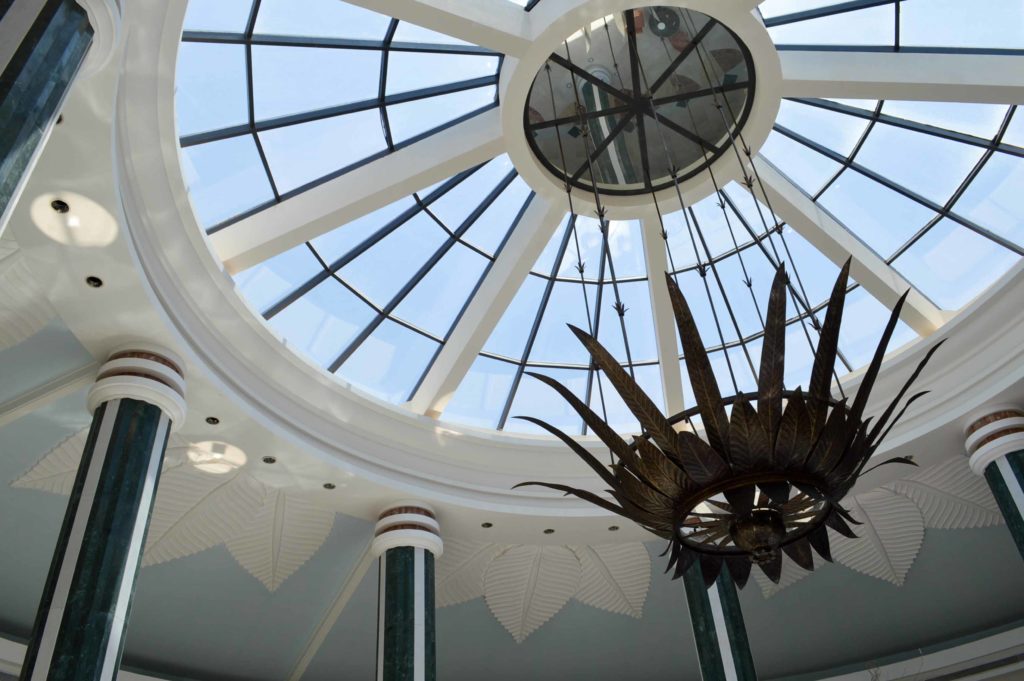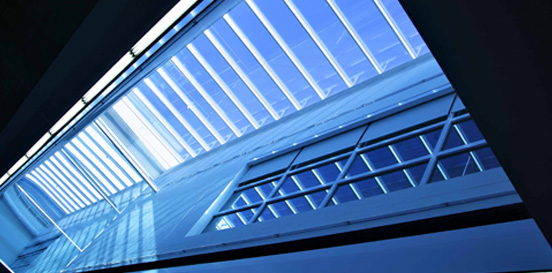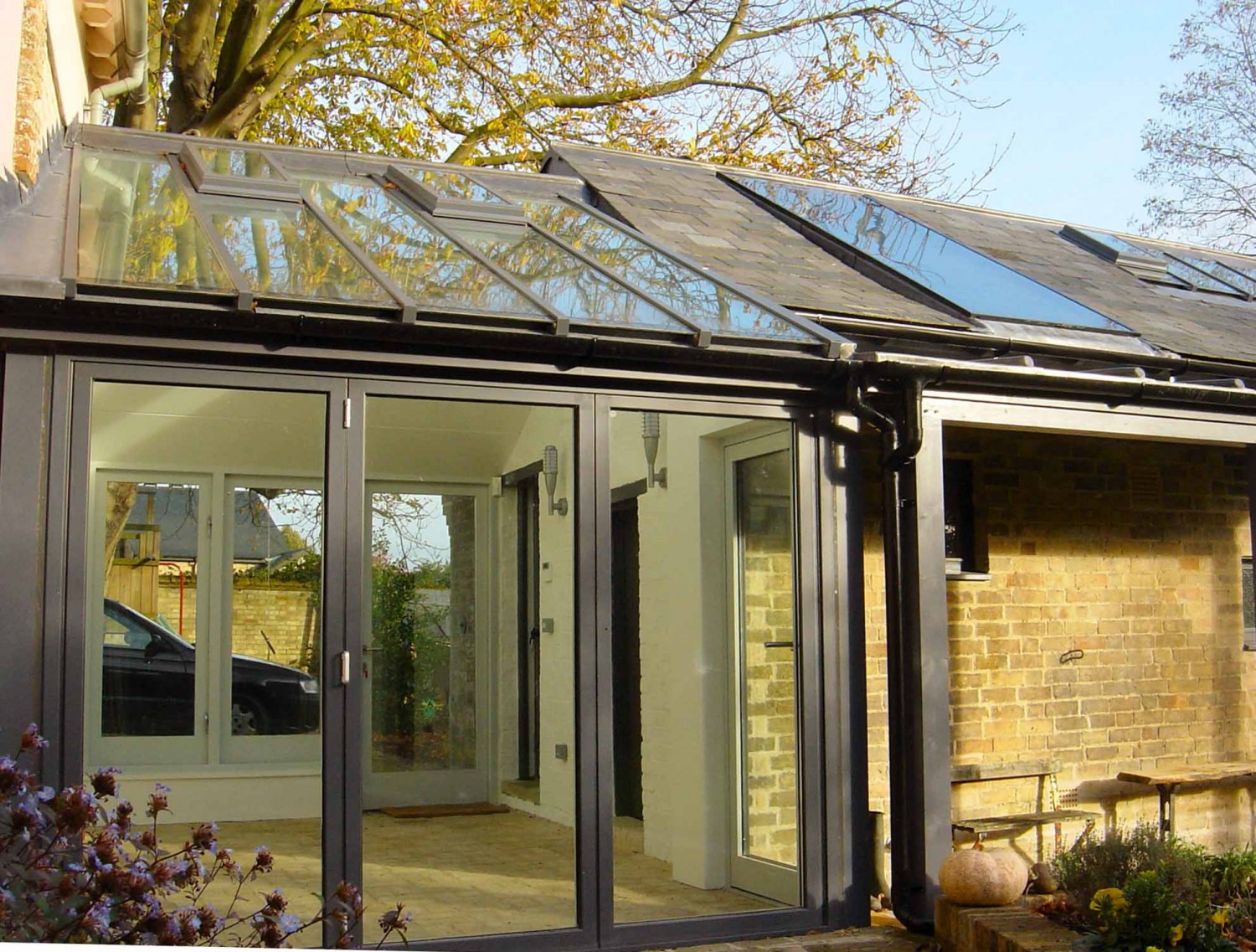
Bespoke Rooflights

At Lonsdale, we specialise in bespoke rooflights and have provided overhead glazing systems for many important and historic buildings. These include; Buckingham Palace, Windsor Castle, The British Museum, National Gallery, The V&A Museum and private homes for Prince Edward & Sophie, Duchess of Wessex, The Cartier family, Sir Rod Stewart and Sir James Dyson to name a few!
Why Use Bespoke Rooflights?
Customised rooflights empower you to design, order and install rooflight solutions that precisely suit your specification. These rooflights serve as an excellent means of introducing natural light which will enhance the overall illumination of residential and work environments.
When opting for standard rooflights, there are limitations in terms of placement and the amount of light they contribute to a space. To overcome this we can offer a more comprehensive and personalised solution to fulfil your diverse lighting needs.
Architects and specifiers considering a bespoke skylight will be helped by the following design considerations:
Glass Types
Toughened or laminated safety glasses MUST be specified for overhead glazing. Toughened glass is heat treated so that when broken it shatters into tiny small dice that even if they fall are so small they are unlikely to cause injury. However, it does make less mess and should not be fitted over swimming pools or food preparation areas as can be very difficult to ensure recovery of every fragment. The laminated glass features a ‘plastic’ interlayer varying from 0.4mm to 1.5mm sandwiched between two sheets of glass. When broken, the glass usually stays in place and is retained within the frame. Both types are suitable up to 5m above floor level, but higher than this it is recommended laminated glass should be used. Double and triple glazed insulating units usually feature a toughened outer pane with a laminated inner pane. The thickness of glass varies to suit the size and relevant wind/snow loadings, but general ‘all purpose’ double glazed units tend to be made from 6mm toughened outer pane and 6.8mm laminated inner pane. If you’re in need of assistance when it comes to choosing the right glass type for your bespoke glass rooflights, please get in touch with us.
Solar Control & Thermal Insulation
Low emissivity coatings mean we can now achieve centre pane U values of 1.0W/m2.K for double glazing and 0.60W/m2.K for triple glazing. Generally, though, a centre pane U value of 1.2W/m2.k has become ‘the norm’ as this will comply with Building Regulation Part L A & B requirements at a reasonable cost. Solar control is best achieved using a neutral solar control glass which allows 70% light transmission and typically only 35% of the sun’s heat. These values are referred to as LT (light Transmission) and G(Gain). In this case, we describe the performance of this particular spec as 70/35 and it is commonly available. Body tinted glass is available in blue, grey, bronze or green and although commonly marketed as ‘anti-sun’, they only cut down glare and not solar heat gain. Solar gain can also be controlled by fitting external blinds or briese soleil, but care must be taken to liaise with the glazing specialist to avoid the risk of thermal cracking due to uneven shading.
Pitch
The minimum recommended pitch for bespoke rooflights is 15° at which there are no unusual complications due to wind and snow loads. The other advantage, is that glass will remain relatively clean without the need for ‘self-cleaning’ treatment as a good shower of rain will remove most dirt and debris. Below 15°, systems must be certified to perform at lower pitches and special attention must be paid to the flashings at abutments with the building to avoid the risk of water ingress due to capillary action. Flat rooflights are silicone glazed and installed between 3° and 5° degrees to prevent water ponding in the middle of the glass. Some very large single pane rooflights should not be installed at less than 10 due to the inevitable deflection of the larger panes of glass for the same reason.

Glazing Bar Spacings
Most domestic conservatory roof systems are suitable for glazing bar centres up to 800mm wide, as toughened glass tends to be used to both sheets of glazing. Commercial rooflights are more often installed with laminated glass to the inner pane which is more flexible. The general rule is that with basic 2-edge support systems, glazing bars should not be installed beyond 750mm centres, but 4-edge support system clamping the glass on all four sides, can be installed up to 1200mm wide and sometimes wider subject to glass specification and loadings.

Spans
Typically, spans can be achieved with single glazing up to 5000mm and 4000mm if double glazed. In both cases, glass will need to be joined due to manufacturing restrictions. Bespoke rooflights featuring longer spans are sometimes possible, but likely to involve specialist glass manufacture to order and handling during installation must be carefully considered.
Non-Fragility & Walk-On Requirements
An important consideration when designing bespoke rooflights is safety during ongoing cleaning and maintenance. A risk assessment should be carried out whether there is risk of injury to people tripping or falling onto the rooflight in which case a non-fragile system should be specified or the rooflight protected by barriers to prevent anybody falling onto the glass. If the rooflight is likely to be walked on by unauthorised personnel, such as students after a night in the town returning to their accommodation, then walk-on glass should be specified to provide the necessary
robustness.

Finish
Most aluminium bespoke rooflight systems are available in a range of matt, satin and gloss finish standard RAL and BS polyester powder coating finish. A range of metallic colours is also available, but anodizing is best avoided for reasons of fabrication.
Smoke & Natural Ventilation
Opening vents can be added to bespoke rooflights and these may be operated manually or electrically. A range of control panels are available to provide automatic opening/closing via thermostat and/or rain sensor. Smoke ventilators are also available, but care must be taken to ensure these are correctly certified and tested to meet the requirements of EN12101 Part 2.
For expert and helpful advice on any of the above issues and more, please contact our Technical
Department on 0208 801 4221 or email info@lonsdalemetal.co.uk.
How to measure your rooflights Download our step by step guide

-

Call 0208 801 4221 For a Competitive Quote or Email info@lonsdalemetal.co.uk
We offer stock lengths or a design and fabrication service with all materials, pre-drilled, cut to size complete with all necessary fittings and fasteners ready for immediate installation.
Contact us today.
FAQs
How Much Are Bespoke Rooflights?
Unfortunately it can be difficult to make an exact estimate of price. Many factors come into play before we can provide you with a quote including: size, shape, glass size, and glass type. If you require an estimate of the costs, please don’t hesitate to contact us!
Are There Maximum or Minimum Size Limits?
The widest we can manufacture your rooflights is 6 metres, but there is no maximum length. For SpanGard self-supporting rooflights, the length your rooflight can be is infinite. We have installed large area glazing for train stations, museums, schools and municipal buildings, so no matter the size requirements of your rooflight, we are sure to match them.
Do Bespoke Rooflights Have Limitations?
Absolutely not. Whether you need a triangular, hexagonal, or even asymmetric shape, we can provide to your exact requirements. Contact us now to discuss your rooflight options!
Can I Return an Item?
As with any product made to order, we do not accept returns. It is vital that you ensure your bespoke skylights are correct and you’re absolutely certain of your choice before you order your item.
Can I Choose Any Shape?
Yes! Whether you’re looking for a hipped, gable-ended, pyramid, hexagon, octagon, polygon, or an irregularly-shaped bespoke rooflight, ask and you shall receive. We appreciate out-of-the-box ideas and value your vision, so we will do our best to exceed your expectations.
Are Custom Rooflights Thermally Efficient?
Custom rooflights are designed to provide an equivalent level of thermal efficiency as premanufactured rooflights. This is achieved through the incorporation of advanced features such as double glazing and thermal breaks. The use of double glazing ensures that the heat generated inside the building is effectively retained, minimising the chances of heat escaping through the window.
